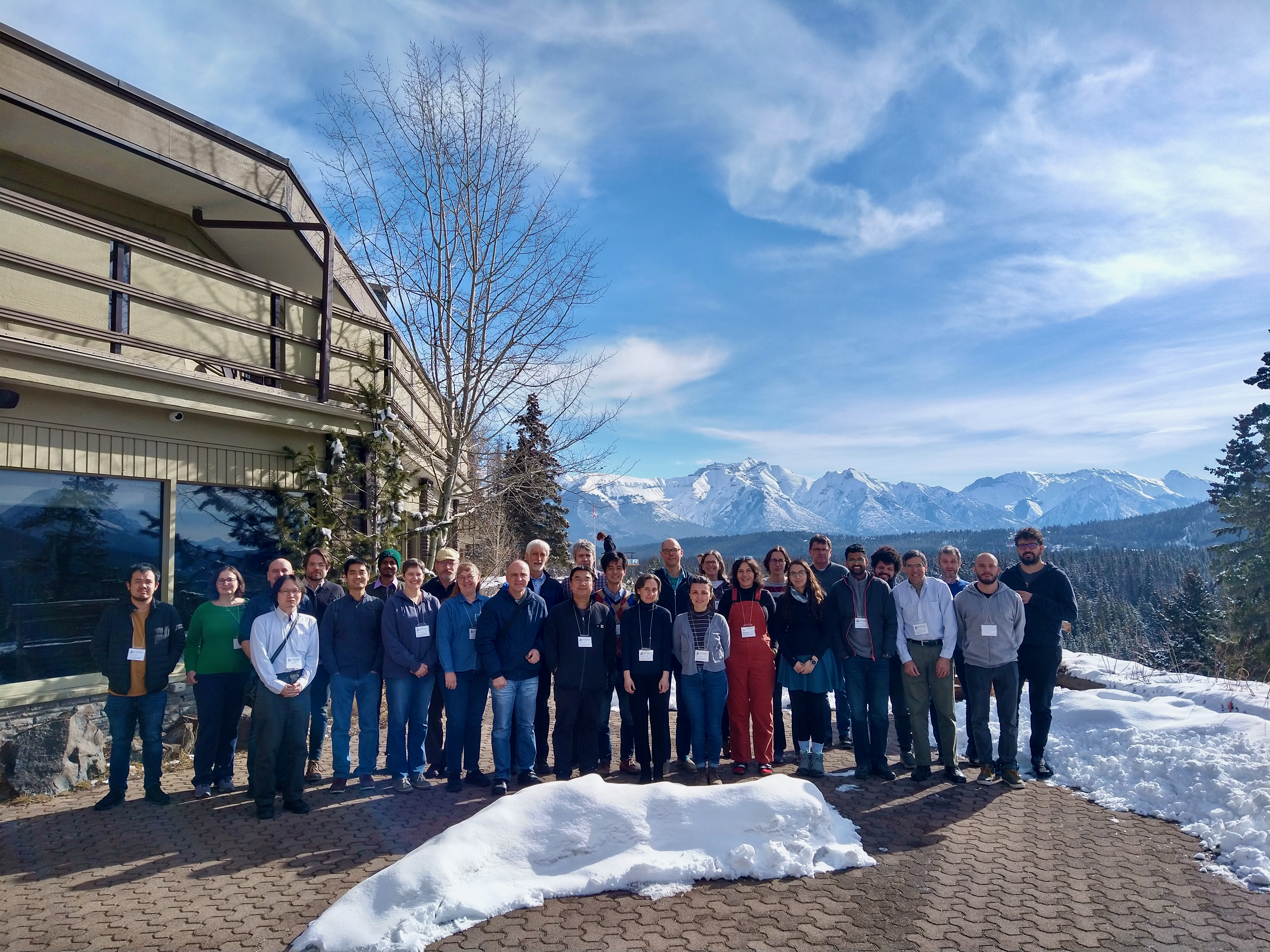Interactions Between Topological Combinatorics and Combinatorial Commutative Algebra (23w5003)
Organizers
Sara Faridi (Dalhousie University)
Satoshi Murai (Waseda University)
Adam Van Tuyl (McMaster University)
Mina Bigdeli (Institute for Research in Fundamental Sciences)
Description
The Banff International Research Station will host the "Interactions Between Topological Combinatorics and Combinatorial Commutative Algebra" workshop in Banff from April 2 to April 7, 2023.

Starting with the pioneering work of Stanley and Hochster in the early seventies, commutative algebra methods have become an essential part of geometric and algebraic combinatorics, and more specifically face enumeration theory. The connecting language between commutative algebra and combinatorics is that of monomial ideals in polynomial rings. For instance, the Stanley--Reisner ideal of a simplicial complex is a monomial ideal generated by monomials representing the non-faces of the complex. The algebraic properties of this ideal are strongly related to the combinatorial and topological invariants of the complex in question. The Stanley--Reisner connection has been used heavily by researchers in combinatorics. In fact, some of the most beautiful results in the theory of face numbers of simplicial (and more general) complexes on one hand and graded Betti numbers of monomial ideals on the other were proved by using this language along with a subtle combination of algebraic and geometric arguments (e.g., Lefschetz elements, generic and not-so-generic initial ideals, local cohomology, rigidity, etc.).
The Banff International Research Station for Mathematical Innovation and Discovery (BIRS) is a collaborative Canada-US-Mexico venture that provides an environment for creative interaction as well as the exchange of ideas, knowledge, and methods within the Mathematical Sciences, with related disciplines and with industry. The research station is located at The Banff Centre in Alberta and is supported by Canada's Natural Science and Engineering Research Council (NSERC), the U.S. National Science Foundation (NSF), Alberta's Advanced Education and Technology, and Mexico's Consejo Nacional de Ciencia y Tecnología (CONACYT).






